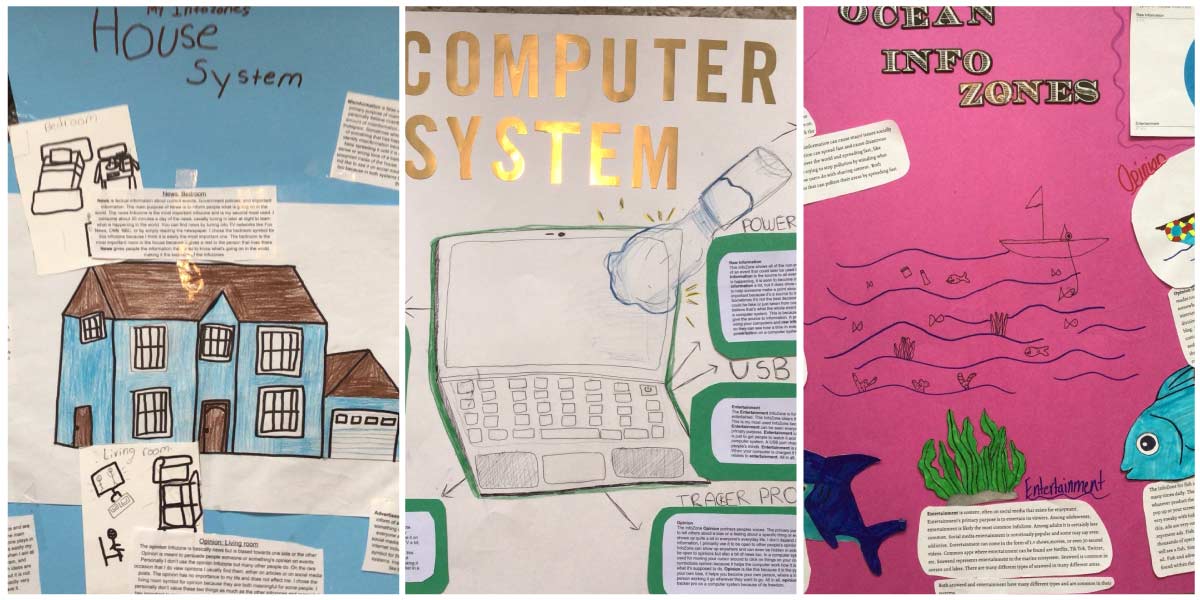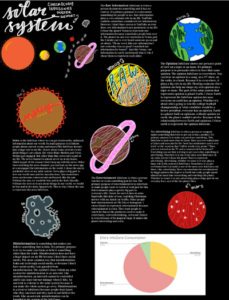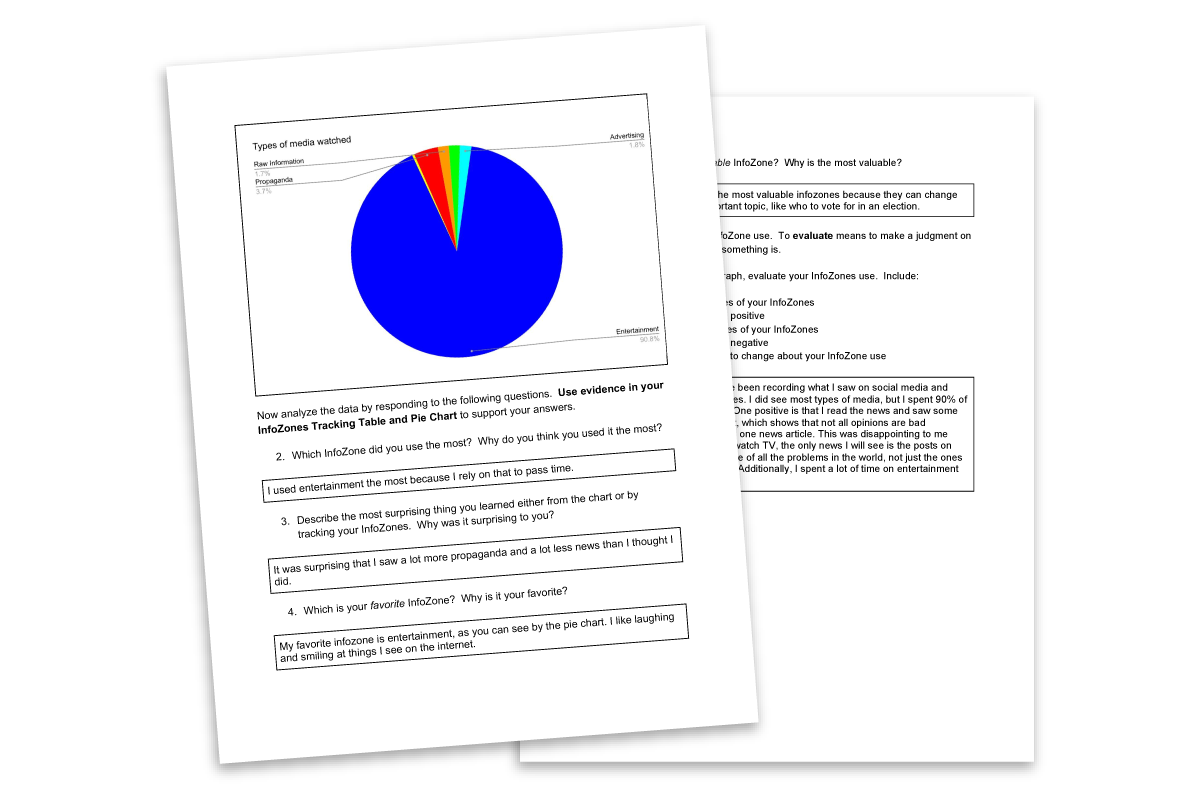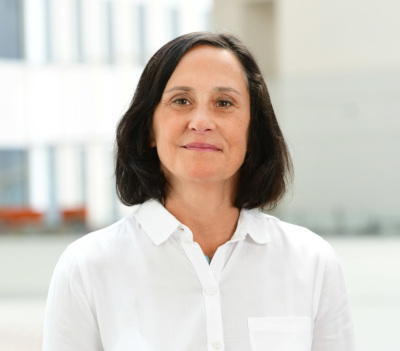
NewsLit Week | Seventh-graders connect dangers of misinformation to daily lives


A student’s poster depicting the information ecosystem as the solar system using InfoZone categories.
During a news literacy unit, seventh-graders in Jeff Rosen’s history class learned about different categories of information and the dangers of misinformation. They also learned about themselves and their place in the information ecosystem.
“They began to identify some of the harmful things they were seeing,” says Rosen, a social studies teacher at The Joseph Sears School in Kenilworth, Illinois. “I don’t think the kids knew they were being exposed to misinformation.”
An educator for 14 years, Rosen led his history class through a two-week unit on media literacy using NLP’s Checkology® virtual classroom. He focused on the “InfoZones” and “Misinformation” lessons and COVID-19 misinformation resources. But the learning didn’t end there.
“I try to find ways for the kids to apply the skills they learn to their everyday lives through tracking documents and reflection,” he says. “There’s a really urgent need to learn this now. They’re consuming information every day from a variety of sources and are not equipped with skills to differentiate what they are seeing.”
Measuring behavior
To accomplish this, students connected what they learned to their own lives by tracking information they consumed over two days. They categorized content by primary purpose — news, opinion, entertainment, advertising, raw information and propaganda/misinformation. Students then illustrated their findings in pie charts and reflected on what they found.


Examples of student work tracking their media consumption and reflecting on their habits.
Here is one student’s honest insight.
“I spent 90% of my time watching entertainment. One positive is that I read the news and saw some respectful opinions on the internet, which shows that not all opinions are bad propaganda. However, I only read one news article. This was disappointing to me because if I don’t read articles or watch TV, the only news I will see is the posts on Instagram. I want to be more aware of all the problems in the world, not just the ones that make it onto people’s stories.”
Recognizing dangers of misinformation
The students also discovered that so-called “fake news” is actually part of the information they see and engage with every day, underscoring the dangers of misinformation.
To reinforce this, Rosen had his class delve deeper by creating posters that describe a system with symbols for the “InfoZones” categories. They then demonstrated how misinformation poses a threat to a healthy system. One student represented misinformation as an asteroid in the solar system. Another labeled misinformation as pollution in a marine ecosystem.
“This shows that the kids have a deep understanding of these kinds of information. Applying symbols to them requires abstract thinking,” Rosen says. “It’s not just a surface skill they’re learning. They’re starting to internalize it and put it into practice.”
Rosen has also learned a good deal over the four years that he has been teaching Checkology. Originally, students simply enjoyed Checkology’s use of examples they could relate to — familiar YouTube stars or advertisements for favorite products.
“Now kids really recognize the importance of being able to identify what they’re seeing, and it’s an important skill to them. I’ve seen a change in their attitudes toward the media. Kids recognize the importance and urgency of being able to do this,” he says.
And that urgency and importance are never going away, Rosen notes. “We’re never going back. We’re never going to be able to say ‘don’t use these platforms.’ There’s so much good information out there but so much that’s bad. We need to teach them how to navigate it.”
With his creative approach, Rosen is doing just that.

